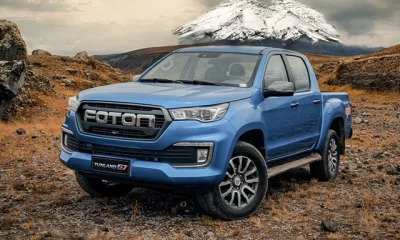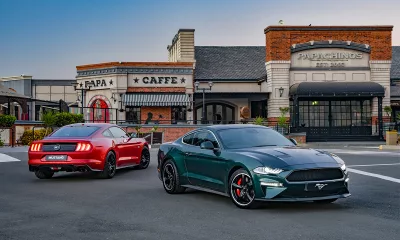
Naamsa says South Africa’s new-vehicle sales fell 12,0 percent year-on-year in November 2020, representing “gradual” monthly gains in sales growth by volume. Still, the organisation said the year-to-date situation “remained depressed”.
Aggregate domestic sales at 39 315 units reflected a decline of 5 355 units or 12,0 percent from the 44 670 vehicles sold in November 2019.
Naamsa said the trend was mirrored by export sales at 31 966 units, which declined by 2 622 units or 7,6 percent compared with the previous year’s figure. Export sales for the year to date reflected a fall of 122 987 vehicles or 32,9 percent compared with the same period in 2019, with a “second-wave lockdown” in major markets threatening to further negatively impact the figures.
Out of the total reported industry sales of 39 315 vehicles, Naamsa said an estimated 33 547 units or 85,3 percent represented dealer sales, an estimated 8,0 percent represented sales to the vehicle rental industry, 3,9 percent sales to government and 2,8 percent to industry corporate fleets.
The November 2020 new passenger car market at 25 707 units registered a decline of 5 696 cars or a fall of 18,1 percent compared with November 2019. Interestingly, the car rental industry accounted for a “sound” 11,6 percent of car sales in November 2020.
Domestic sales of new light commercial vehicles, bakkies and mini-buses at 11 243 units during November had recorded a “welcome increase” of 567 units, or a gain of 5,3 percent, from the 10 676 units sold during the corresponding month last year. However, sales for medium and heavy truck segments of the industry reflected a “weak performance” and at 664 units and 1 701 units respectively, showed a year-on-year decline of 9,5 percent and 8,4 percent.
Naamsa said there was a “positive development” in the form of “steady small recovery gains” in the new-vehicle market over recent months but cautioned that “real growth” was still far away.
“The economic scars of the COVID-19 pandemic are extreme and the domestic as well as global economic environment would remain uncertain and volatile over at least the next six months until safe and effective coronavirus vaccines are available and rolled out in South Africa and around the world,” the organisation said.
“With low inflation, marketing incentives available on new vehicles as well as interest rates expected to remain low for quite some time, it is actually a good time to purchase a new vehicle. However, consumer behaviour changes and short-term budget pressures could result in longer-term developments on the back of protracted COVID-19 concerns as consumers might have less need for mobility, despite improved new vehicle affordability,” it added.




